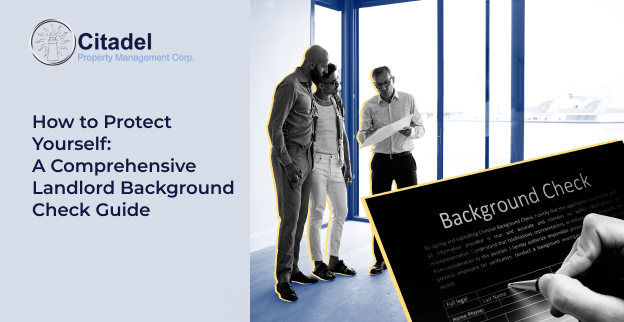As a landlord, trusting your property to a tenant is a significant decision. While a prospective tenant’s charm and positive first impression are important, a thorough landlord background check is crucial for safeguarding your investment and ensuring a smooth rental experience. This guide equips you with the knowledge and resources to conduct comprehensive background checks on potential tenants, minimizing risk and maximizing your chances of finding reliable and responsible occupants.
Why Conduct a Landlord Background Check?
Landlord background checks offer valuable insights into a prospective tenant’s financial stability, rental history, and potential red flags. Here’s why they are essential:
- Reduced Risk of Eviction: Background checks can reveal a history of evictions or lease violations, indicating potential issues with paying rent or maintaining the property.
- Improved Financial Security: Verifying income and employment history helps assess a tenant’s ability to afford rent payments on time and avoid delinquencies.
- Enhanced Property Safety: Criminal background checks can uncover past criminal activity, allowing you to make informed decisions regarding tenant safety and potential property damage.
- Peace of Mind: Knowing you’ve conducted a thorough background check fosters peace of mind and allows you to rent your property with greater confidence.
What Does a Landlord Background Check Typically Include?
The scope of a landlord background check can vary depending on your specific needs and local regulations. Here are some common elements:
- Credit History: A credit report reveals a tenant’s financial responsibility, including past debts, payment behavior, and creditworthiness. This can indicate their ability to manage rent payments on time.
- Criminal History: A background check can reveal past criminal convictions, depending on local laws and the chosen service. Landlord-specific reports might not include all criminal records, so consult with an attorney regarding local regulations.
- Eviction History: Eviction searches verify if the tenant has a history of being evicted from previous rentals. This can indicate potential issues with adhering to lease agreements and maintaining good relations with landlords.
- Employment Verification: Contacting an applicant’s current employer confirms their employment status and income level. This helps assess their ability to afford rent.
- Rental History Verification: Reaching out to previous landlords helps confirm the tenant’s rental history, including on-time payments, adherence to lease terms, and any property damage concerns.
- Reference Checks: Contacting personal and professional references can offer insights into the tenant’s character, responsibility, and overall suitability as a renter.
Conducting a Landlord Background Check: A Step-by-Step Guide
Here’s a step-by-step process to guide you through conducting a comprehensive landlord background check:
- Obtain Written Consent: Secure written consent from the tenant authorizing you to conduct a background check. This ensures compliance with fair housing laws.
- Choose a Background Check Service: Several background check companies cater specifically to landlords. Research and compare services based on the information they provide, compliance with fair housing laws, and pricing structure.
- Gather Information: Collect necessary information from the applicant, such as their full name, Social Security number (with their consent if required), previous addresses, and employer contact details.
- Run the Background Check: Submit the information to your chosen background check service. The turnaround time can vary depending on the chosen service and the scope of the check.
- Review Results: Carefully review the background check report, noting any red flags or inconsistencies. Consider these findings in conjunction with the applicant’s overall application and interview.
- Make an Informed Decision: Based on the background check results, your assessment of the applicant’s application, and your gut feeling, make an informed decision regarding selecting the best tenant for your property.
Important Considerations for Landlord Background Checks
- Fair Housing Laws: Ensure compliance with Fair Housing Laws by adhering to non-discriminatory practices throughout the screening process. Background checks should not be used to discriminate based on race, religion, national origin, sex, or other protected characteristics.
- Tenant Selection Criteria: Establish clear tenant selection criteria before conducting background checks. This ensures consistency and helps avoid accusations of bias. Consider factors such as income verification, credit score minimums, references, and pet policies.
- Adverse Action Notices: If you decide to deny tenancy based on the background check results, you may be required to provide an “adverse action notice” to the applicant, explaining the reasons for denial. Consult with an attorney regarding specific requirements in your area.
Conclusion
By conducting thorough landlord background checks, you can mitigate risks associated with rental properties. A comprehensive background check allows you to select responsible tenants who are more likely to pay rent on time, maintain the property well, and contribute to a positive rental experience. Remember to comply with Fair Housing Laws, establish clear selection criteria, and use the information gathered to make informed decisions about your property. By implementing a responsible background check process, you can safeguard your investment and lay the foundation for a successful landlord-tenant relationship.
FAQs: Frequently Asked Questions About Landlord Background Checks
- Are landlord background checks legal?
Yes, landlord background checks are legal, provided you comply with Fair Housing Laws and obtain written consent from the tenant before conducting the check.
- Who pays for the landlord background check?
The cost of the background check can be borne by the landlord or the tenant, depending on local regulations and your agreement with the applicant. It’s best to clarify this upfront in your application process.
- How long does a landlord background check typically take?
The turnaround time for background checks can vary depending on the service used and the scope of the check. Basic checks might be completed within a few days, while more comprehensive reports may take a week or longer.
- Can I run a background check on myself as a landlord?
Yes, you can conduct a background check on yourself to present transparency to potential tenants. This can demonstrate your commitment to a fair and secure rental process.
- What are some alternatives to a traditional background check?
While traditional background checks offer valuable insights, alternative approaches can be considered. These may include requiring higher security deposits, renting to tenants with co-signers, or opting for shorter lease terms initially.











